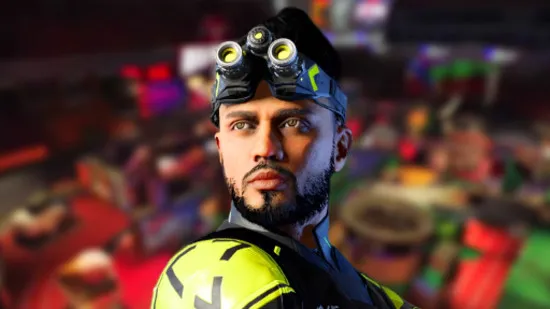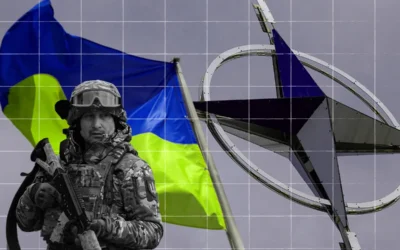The Rise and Fall of Ubisoft’s XDefiant: A Candid Reflection
In the ever-evolving landscape of video games, few titles generated as much anticipation as Ubisoft’s XDefiant. Initially branded as a potential ‘Call of Duty killer,’ the first-person shooter aimed to carve out its niche amidst the crowded arena of modern multiplayer combat games. But just like a fleeting comet, it has now illuminated the gaming space only to extinguish so shortly thereafter. The news of XDefiant’s official shutdown fills many fans and industry veterans alike with a mix of disappointment and reflection.
XDefiant: The Vision
When Ubisoft first unveiled XDefiant, expectations skyrocketed. The game, set in a universe where iconic characters from different franchises—ranging from Far Cry to Watch Dogs—interacted and battled in frenetic multiplayer matches, offered an innovative twist on then-established mechanics. Its developers, including industry veteran Mark Rubin, known for his work on the Call of Duty franchise, led ambitious promises of a balanced, competitive experience.
Yet despite this ambition, the game never quite achieved the momentum that both fans and its creators had hoped for. Technical hiccups, an overreliance on established franchises, and an increasingly saturated market gradually diluted its original allure. There was a palpable disconnect between its ambitious concept and the execution, which left many players disheartened.
Why Did XDefiant Fail?
Ubisoft has faced a plethora of challenges in recent years. From development controversies to backlash against microtransactions and player reception, its portfolio of titles has frequently encountered backlash. With XDefiant, a few key missteps compounded the challenges the game faced:
- Technical Issues: Gaming experiences have become increasingly refined, and consumers expect nothing less. Unfortunately, XDefiant struggled in quality assurance, with bugs and server issues plaguing its launch and lifecycle.
- Market Saturation: The FPS market is currently crowded with options—from Apex Legends to Valorant and, of course, Call of Duty. XDefiant entered a space where players had numerous alternatives, making it difficult to attract a steady player base.
- Overreliance on Familiar IP: While leveraging established franchises may seem like a boon, it can also alienate players if not executed thoughtfully. Many felt that XDefiant leaned too heavily on its Ubisoft heritage rather than innovating in its own right.
The Announcement of Shutdown
The official announcement of XDefiant’s shutdown was met with mixed emotions. While the disappointment was palpable, others expressed surprise that the game lingered as long as it did. Players had grown attached to certain mechanics, characters, and the overall tone of the game. Yet, even with a dedicated fanbase, it became increasingly clear that Ubisoft was not willing to invest further resources into a project that no longer appeared viable.
Mark Rubin’s departure from the industry, announced coinciding with the game’s end, added an emotional layer to the shutdown news. Known for his significant contributions to the gaming world, Rubin hinted at shifting focus to other ventures. His exit signifies not only a loss for players longing for innovative game designs but also for Ubisoft, which now finds itself at a crossroads.
A Broader Reflection on Ubisoft’s Strategy
XDefiant’s demise shines a spotlight on Ubisoft’s broader strategies in the game development ecosystem. As industry analysts evaluate the future of gaming, there are larger questions surrounding adaptation and evolution:
- Innovation vs. Familiarity: Ubisoft must balance innovation with its heritage brands. Players want new experiences, but they also cherish familiarity. Striking this balance is paramount.
- Community Engagement: Listening to players is increasingly vital. Game development often involves a layered dialogue between developers and the community. Failing to adapt the game based on community feedback, especially in a live-service environment, can be its downfall.
- Resilience in the Face of Failure: While XDefiant’s closure stings, it is essential for Ubisoft to learn and grow from the experience. Understanding what worked and what didn’t will be critical in shaping future endeavors.
What Lies Ahead for Ubisoft?
Despite the closure of XDefiant, Ubisoft has a wealth of franchises within its portfolio, each offering a unique perspective on gaming. The company’s flagship titles such as Assassin’s Creed and Rainbow Six Siege continue to thrive, but the overarching question remains—can Ubisoft learn from the shadows cast by XDefiant?
Utilizing player feedback, iterating on established formulas, and fostering healthy community interaction will be crucial steps for Ubisoft as it navigates upcoming titles. The gaming community thrives on innovation, storytelling, and, most importantly, player engagement. With a renewed focus on creating quality experiences, Ubisoft can turn endings into new beginnings.
A Lesson for the Gaming Community
XDefiant’s shuttering serves as a poignant reminder for fans and developers alike. The gaming sphere is a dynamic and competitive environment where not every endeavor can succeed. Players invest their time, money, and passion into games; thus, when a title meets its end, the effects resonate beyond simple loss.
The ultimate closure of XDefiant embodies a broader lesson: while aspirations are lofty, execution requires diligence, humility, and an unwavering commitment to community. Games are not merely products; they are experiences shaped by passion, collaboration, and shared enjoyment. Developers must acknowledge this with every new launch.
The Future of First-Person Shooters
The world of first-person shooters evolves at breakneck speed. As players look toward the future, aspiring developers are challenged to innovate while respecting the traditions that draw players back. Ubisoft must harness the lessons gleaned from XDefiant—overcoming obstacles, adapting to market trends, and aligning with player desires.
As we say goodbye to XDefiant, we also welcome the opportunity for growth. In a landscape infused with nostalgia and ambition, careful steps taken today will pave the way for the revolution of tomorrow’s gaming experiences. The hope remains that the industry, fueled by understandable passion and creativity, can continue to evolve into something magnificent.
As we look forward to Ubisoft’s next moves, fans can only hope that they choose to embrace risk and risk-making innovation, rather than needless repetition.
In the end, while XDefiant might not have emerged victorious in its quest to dethrone giants, what remains is a hope that one day, with lessons learned, they may achieve that elusive success in their future endeavors.







